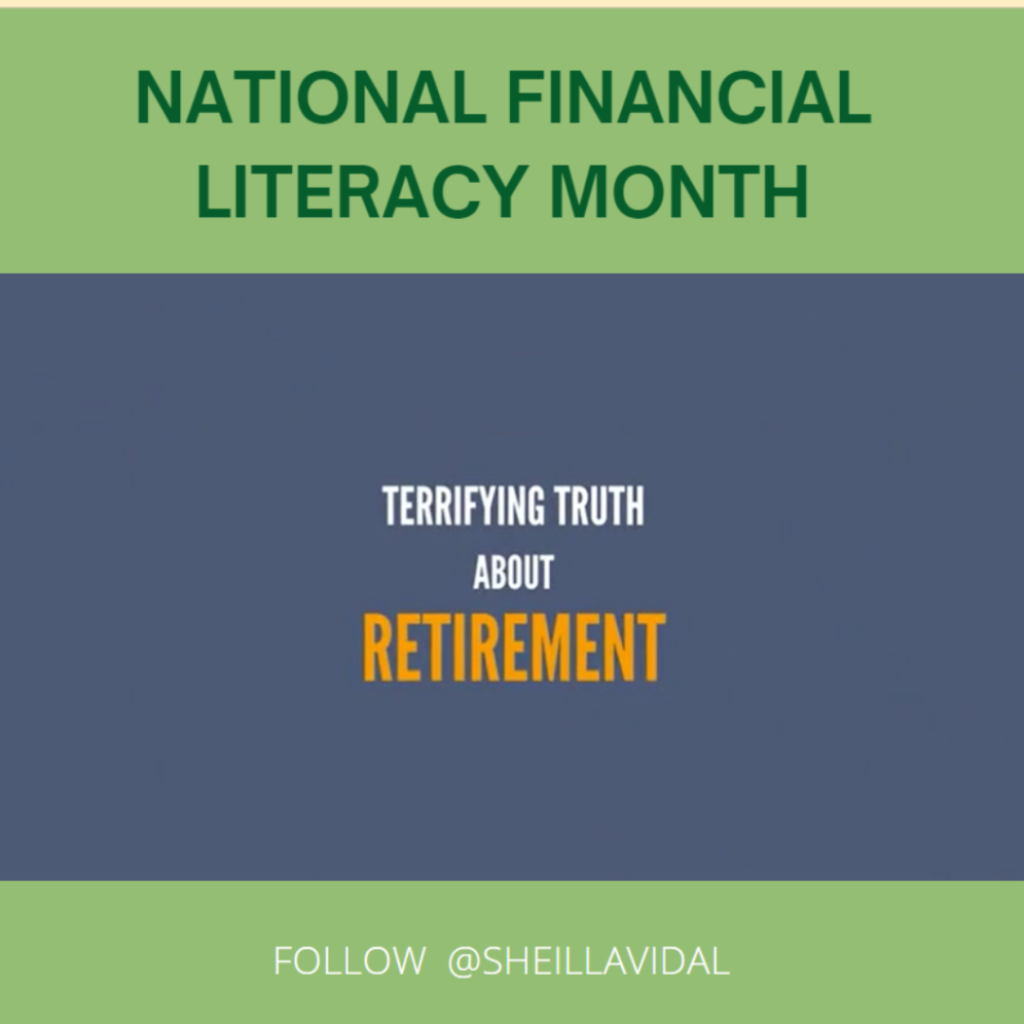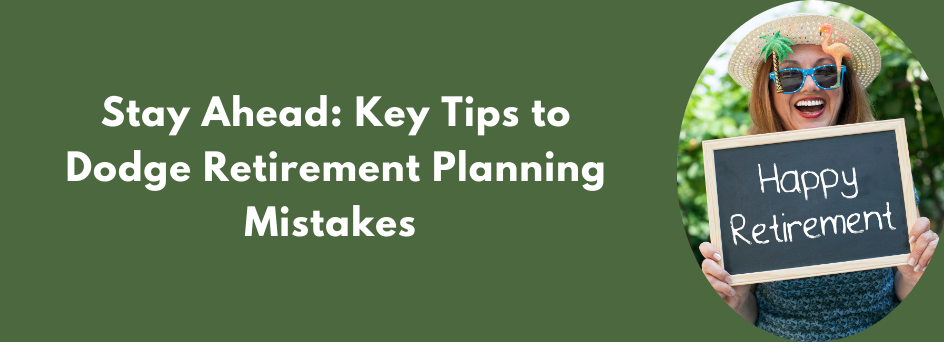April is Financial Literacy Month
Financial literacy is something I’m passionate about.
It’s something I’ve been interested in since I was in my early twenties when I started earning an income. I’m grateful that I get to do this for a living, teach and empower my clients about their financial plans so they can live with dignity, ease, and grace. I also educate my kids at an early age because we all know that schools do not provide this kind of education and good habits develop early in life.
I’d be glad to teach your teens or young adult children who need guidance on financial matters. I’m currently working on something for children and when it’s ready you will be the first to know.
I wish for our children and grandchildren to be a financially literate generation. But it’s up to us parents and grandparents to be role models. It starts with us showing them that we are financially savvy and that we have control of our finances. If that is not the case, it is never too late. Reach out to me directly if you have any questions, or through the Q&A section below.
Read more about FLM below and how you can make the most of it.
P.S. If you like my newsletter, please don’t keep it a secret :). Forward it to your family, friends or share it on social media and ask them to subscribe.
All my best,
Sheilla
Experiencing a DBMDR-Death, Birth, Marriage, Divorce, or Retirement? I can help!
To find out more, schedule a meeting with me.
National Financial Literacy Month
What is National Financial Literacy Month
Simply put, it is a month-long campaign to raise public awareness about the importance of financial literacy. Youth Financial Literacy Day was started in 2000 by the National Endowment for Financial Education (NEFE) in Denver, Colorado. NEFE later requested the National Jump$tart to take over the role, which then expanded it to the entire month of April.
During Financial Literacy Month, financial institutions, nonprofits, and human service agencies increase their focus on the importance of financial literacy through events, programs, and counseling. The goal goes beyond helping consumers learn more about finances to helping them actually improve their personal and household financial stability and success.
Financial Literacy is having both the knowledge and the competence to manage your personal and household finances in order to set and reach meaningful goals.
Why does Financial Literacy matter
- Personal finance remains the number one topic of arguments within a marriage.
- Parents rank teaching financial responsibility to their children near the top of their wish list.
- Only a handful of states require high school students to take a personal finance course before graduation.
- Poor financial literacy leads to poor decision-making which leads to poor behavior which limits the household’s ability to reach its financial goals.
Spring Cleaning Your Financial House
As an insurance advisor, I guide and educate my clients to improve their financial literacy and aid in their financial health and overall well-being. It goes along with being a health professional as well.
In the United States, inflation has been increasing at rates not seen in the last 40 years, due to the pandemic and horrific Russian invasion of Ukraine. Households will want to learn how to combat inflation to offset some of the adverse impacts of rising costs.
Not all is doom and gloom. The fact is that we have the opportunity to improve our personal knowledge about our finances and learn how to make our money work harder and better. It is never too late to start.
Budgeting vs Planning
There is a distinction between budgeting and planning.
While budgeting plays a part in financial planning, it is not in itself a financial plan. Budgeting is listing income versus expenses, ensuring expenses don’t exceed income. Understanding our spending habits and knowing where your money is going is the first step in financial planning.
The next step is knowing what our financial goals are. This can vary depending on the stage of life we’re in:
For someone in their 20s, financial goals could be to pay off debt and buy a home.
Incorporating a savings strategy into their budgeting plan will ensure they meet their long-term financial goals.
For someone in their 40s, paying debt, taking care of family (possibly both children and parents, making this the sandwich generation), and saving for retirement are top priorities.
Someone in their 60s could be more focused on health and staying healthy, travel, and making their savings last. Concerns about long-term care and running out of money are at the top of the list. Knowing the different solutions that address these concerns can provide peace of mind.
Cleaning Up Debt vs Retirement Planning?
Many think that paying off all debt must be done first before saving for retirement. However, it doesn’t have to be all or nothing. Starting a savings or emergency fund and saving for retirement can be done in tandem with paying debt.
This is where education comes in, along with the discipline in following a plan to reduce debt, avoid taking on more debt, save, not just for emergencies but also for retirement, through 401k plans and other strategies that provide safety from the stock market. When the market falls, we can rely on other assets such as cash reserves or cash value within life insurance to tide us over until the market recovers. Having both an offensive and defensive financial strategy will provide security, and market volatility, inflation or deflation will have less of an impact on our overall savings.
In summary, being clear about one, your monthly budget, and two your financial goals helps us develop a financial plan. I call it a dignity plan.
Financial literacy allows us to take control of our finances early and successfully prepare for our financial goals, perhaps even retire sooner!
Ways to make the most of Financial Literacy Month
1. Test your financial literacy by taking this short quiz.
2. Watch the video below titled Terrifying Truths About Retirement.
3. Get a book or attend a webinar on a financial topic. Go to the library or look for events and seminars offered by your local bank or credit union. Involve your family or friends. It’s more fun when you are not doing it alone.
4. Read a book about money to your kids. There are many books that suit your kids’ age.
5. Take your kid to the bank and open a bank account for them. Explain to them why they need to save instead of spending all their money. Teach them how to budget.
6. Partner with a professional such as myself and set up a time to meet. I’m happy to meet with children and provide education at a level they can understand. I talk to children about life insurance. It’s often hard for parents to explain concepts like these to kids. Let me do the work!
7. Use social media to spread awareness and encourage your friends to start their financial literacy journey.
Follow me on Instagram and Facebook, to be in the know of all things planning right to take care of the people you love.
I’m growing my team! Do you know a coachable, motivated, ambitious woman who wants to own their time doing what we do? Share this and contact me for more details.

What Dignity Planning Means:
I help you plan to ensure you live in dignity throughout your life until your last breath.
Living in dignity means
- Being able to focus on getting better because money is not an issue
- Being able to live comfortably and pay your mortgage even if you’re sick and can’t work
- Being able to take care of your sick family member because you can afford not to work
- Being able to afford the best care even when not covered by health insurance
- Living a quality of life until your last days
- Continuing to take care of the people who matter most even after you’re gone or no longer can work
Ask Sheilla
Q: What is the advantage of working with you versus going to sites like Policygenius or Ladderlife.com?
A: One of the biggest advantages of working with me is getting the education and guidance during your insurance buying and strategy planning, that you don’t get from these online sites. If you have done your own study and know 100% that term life insurance is the right type of insurance for you, they may save you time and money. However, if you care to understand and learn the different needs and situations that life insurance can address for you and your loved ones, it will benefit you to work with a broker like me. I problem-solve and strategize with my clients, especially in unique situations like if you have a large estate, special needs child, or business.
Another benefit is if you have a medical condition and you get declined by such sites.
Third, our policies come with living benefits, something that you won’t get from their policies, except for maybe a 6-month or 12-month terminal illness rider. Whereas we have critical, chronic, and 24-month terminal illness riders.
Finally, if you value having someone you can call at any time and respond to you quickly, someone who will treat you like their own family, and value having a personal relationship with you, it’s best to work with me.
***********
Sheilla Vidal is a Retirement Income Certified Professional RICP® and life insurance broker. Sheilla is also a physical therapist, wife, mother of two, and one of the caregivers for her 85-year-old father. She is an avid learner. She writes, speaks, and recognizes that her work in helping clients live with dignity is her God-given mission.



